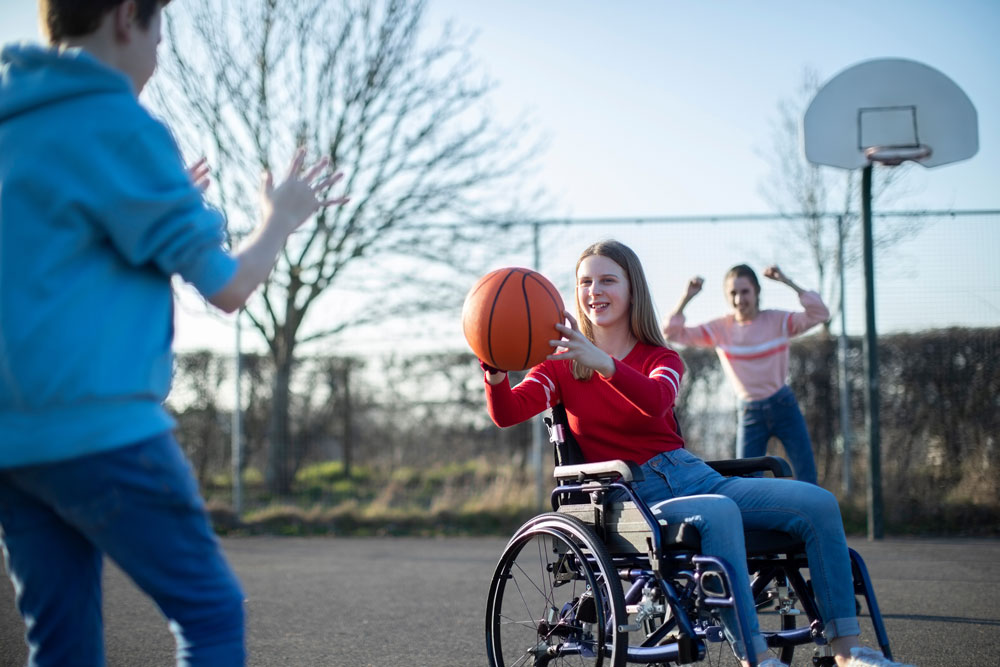Despite its many rewards, parenting isn’t easy. If your child lives with disabilities, it can be even harder. Being part of a supportive community can help. But what does that look like? Below are some tips on how to create connections that will benefit both you and your child.
Join a parent support group
Meeting parents who may be experiencing many of the same challenges as you can make a big difference. According to the Child Mind Institute, “parent support groups can help people feel less isolated or find resources. They’re also a safe place to vent and share victories and disappointments.”
Join a therapeutic playgroup
Therapeutic playgroups are gatherings for parents and children that are facilitated by a trained group leader. Typically, these are sponsored by a community organization such as a YMCA, JCC, school or social service agency. The groups provide socialization opportunities for parents and children, help parents learn to engage their children in play and teach a range of important skills to children.
Parent-led playgroups
These playgroups are generally less structured and less educationally focused than therapeutic groups. Nevertheless, they provide critical social opportunities for parents and children who might otherwise be isolated and disengaged.
If you can’t find a playgroup in your neighborhood, consider starting your own. For best practices see our blogpost here.
Extracurricular activities
Nowadays, there are many recreational and arts programs that cater to children with disabilities and their parents. Some of these programs are inclusive and open to children with and without special needs. Others are specifically geared to disabled children. These include adapted gymnastics, aquatics, baseball, softball basketball, dance, theater, music and more. While these programs are more child-centered in nature, they can provide helpful ways to structure the day and offer the chance to strike up a conversation with another parent who’s dropping off, picking up or waiting for their child. In time, such interactions can turn into friendships!
Religious participation
In recent years, many religious institutions have taken steps to see that families living with disabilities feel welcome and accepted at their places of worship. To that end, some congregations have instituted inclusive religious services that are typically shorter in length, take participants’ sensory needs into account and have different expectations for behavior. For example, walking around the sanctuary or making noise during a sermon might be frowned upon in traditional services but during inclusive services they are accepted behaviors. If your church, mosque or synagogue would like to know about inclusion, share this resource with them: “Every Member Matters: An Information and Resource Kit”, put together by the Austin Interfaith Inclusion Network.


